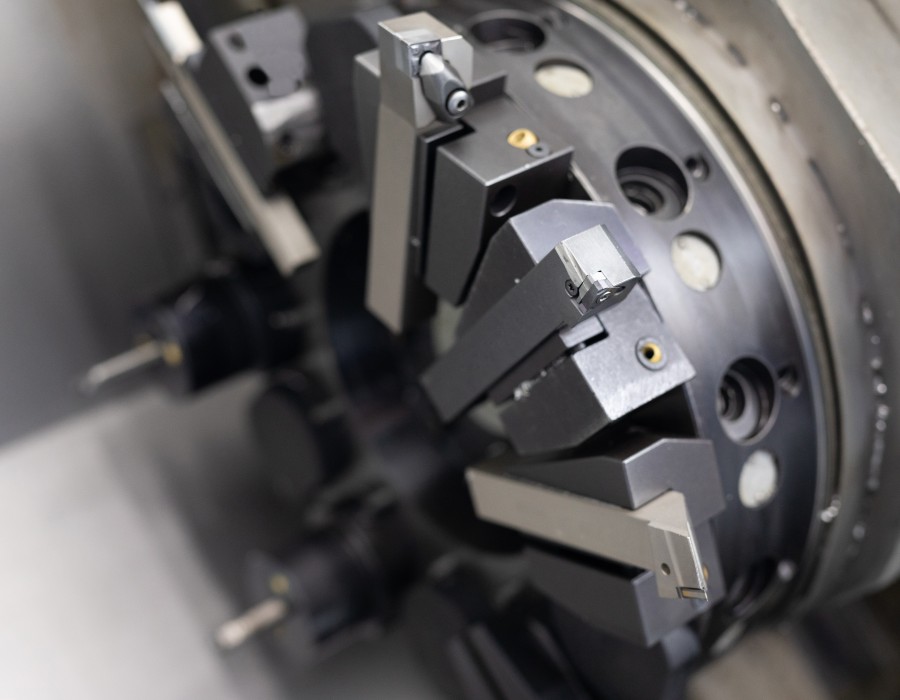Swiss lathes are also famously known as Swiss precise machines. In terms of productivity, they are characterized by their ability to perform multiple machine operations at once. This makes it possible to work on the same workpiece with enhanced productivity. Small, complex machinery parts can be produced in large quantities by using Swiss Precision Machining for various industries, such as the automotive, medical, defense, and electronics sectors. This is where its integration with CNC machining centers becomes most potent.
Benefits of Swiss Precision Machining
While comparing various other industrial parts manufacturing processes, Swiss machining has several advantages that make it more appropriate for specific applications. This makes it typically a choice for numerous industries desiring a high degree of accuracy, state-of-the-art technology, and standard characteristics.
Here are some well-known benefits of choosing Swiss precision machining, often enhanced by the capabilities of a CNC Machining Center:
- Effectiveness
Because Swiss machines have numerous axes, one can operate on multiple tasks at the same time. Regardless of the intricacy of the machinery parts, this makes the Swiss machines more efficient than others.
- Performing Precise Cuts
Traditionally, the intricate machining process was first performed on small components like watches and electronic parts. Although technology has advanced, this traditional industrial process is updated with high-accuracy machines. A high degree of automation also lessens the need for human involvement or control. Which in turn reduces the chances of human errors and guarantees the desired result.
- Accuracy
Swiss machines are celebrated for their high precision, particularly suitable for producing objects with intricate cuts and strict tolerances. The incorporation of CNC machining centers complements this method, ensuring that the tool force does not adversely affect the workpiece, thus maintaining dimensional accuracy throughout the manufacturing process.
Swiss CNC machines: A Guide
Swiss CNC machines are important tools for automating mechanical parts manufacturing to improve performance without compromising quality. A machine shop's efficiency is greatly dependent on its CNC machining centers. This piece offers some firsthand knowledge from a pioneer in CNC machining while outlining the top benefits of Swiss CNC machines.
Here are a few of the benefits of CNC machining:
- Automation
An automatic tool changer (ATC) is used by automated Swiss CNC machines to change their tools. The machine begins its cutting features with a face mill, and when it is done with that tool, it immediately switches to another tool, much like a portable drill, thanks to the program that controls tooling and operations.
- Flexibility
Depending on the type of Swiss CNC machine, the standard tool capacity ranges from 20 to 60 tools, but if the item is sophisticated, it can reach 100, 200, or even more. When running numerous parts with different features, a huge tool matrix is also employed, which removes the need to switch tools.
- Performance
A portion of high-performance machinery parts with identical efficiency is driven by speed. Rapid speeds shorten the cycle time of Swiss CNC machine activities. To change tools, for instance, one can move the spindle home and then precisely position the cutting tool before cutting.
Difference between Swiss CNC Machining and Traditional Machining
Both Swiss CNC and traditional machines begin with an unfinished piece of the workpiece and mold it into a part. The automation of CNC against the manual nature of conventional is the primary distinction between the two machines. Among the primary benefits of Swiss CNC machining over traditional machining are speed, production rate, and precision.
While visiting a Swiss CNC machining center, one can expect a trained worker to code software to cut the parts, whereas when using conventional machining, the worker sets up and runs the gears and machine. Conventional is typically employed for small-scale projects since it is less expensive.
Final Note
In summary, Swiss precision machining stands as the cornerstone of modern manufacturing, offering unparalleled accuracy and efficiency. Its synergy with CNC machining centers enables industries to meet the rigorous demands for quality and precision, ensuring consistent production of intricate parts at scale.





Comments